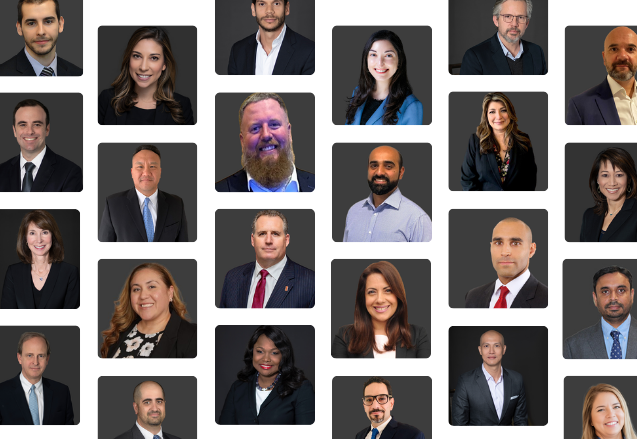This site uses cookies to provide you with a more responsive and personalized service. By using this site you agree to our use of cookies. You can learn more about our use of cookies and similar technologies and your choices by reviewing our Privacy Policy. By clicking “I agree” you agree to our use of cookies and similar technologies.
Government Is Taking Action on Higher Education Immigration Fraud
If 2011 was the year where higher education immigration fraud was widely exposed, then 2012 is the year where the Government is taking action. And universities need to be prepared.
Though there has always been the potential for widespread immigration fraud in connection with higher education, a few instances of egregious fraud last year have brought the issue to the forefront. In January of 2011, agents from Immigration and Customs Enforcement (“ICE”) raided Tri-Valley University in Pleasanton, California, on suspicions that the owner of the university used the unaccredited school to make millions of dollars off of the foreign students in exchange for student visas to help them stay in the United States. Indeed, of the university’s 1,500 students, approximately 95% were from India. When authorities raided the school they found that most of its students were dispersed around the country and holding jobs under their visa’s work study provisions. A mere eight months later, ICE officials were at it again, this time raiding the University of Northern Virginia, an unaccredited university that also had an overwhelming number of students from India.
In the wake of these scandals, elected officials began to pay attention. According to a letter from Senator Dianne Feinstein to ICE, “[t]hese so-called “sham universities” . . . exist solely to allow any foreign national with sufficient resources “including potential criminals and terrorists” to unlawfully enter the United States. In another letter to the Government Accountability Office (“GAO”), Senator Feinstein, among others, requested that it undertake a review of the Student Exchange Visitor Program (“SEVP”) and the United States Department of State and Department of Homeland Security’s (“DHS”) issuance of nonimmigrant student and exchange visitor visas. The Senator expressed her concern that of the 10,000 schools approved to accept such students, increasing numbers have turned out to be operating not for educational purposes but instead solely to manipulate immigration law to admit foreign nationals into the country. The Government Accounting Office is listening.
In January of 2012, Louis M. Farrell, the Director of SEVP, announced that SEVP was being audited by the GAO. Farrell explained that the audit would be two-fold: [I]t will examine both the process through which SEVP certifies academic institutions and the process used to monitor compliance of these certified academic institutions.
Obviously most university-related immigration fraud will not be of the diploma mill variety. However, all universities need to be on high alert, as even a single employee can bring disrepute onto an otherwise credible institution. In July of last year, a former employee of the University of North Carolina at Charlotte pled guilty to concealing and shielding foreign college students who were in violation of their student visas by making repeated false entries into the school’s Student and Exchange Information System (“SEVIS”). Upon detecting the employee’s illegal activities, university officials had immediately contacted ICE.
In the wake of these recent scandals, and in light of ICE’s heightened scrutiny of universities, what is a university to do?
First, understand the requirements. Universities are under an obligation to report accurate and complete information to SEVIS. SEVIS is the internet based system that DHS uses to maintain information on SEVP-certified schools and the international students who come to the United States to study at these schools. It is important that those responsible for entering this information are fully informed and trained as to visa requirements, basic immigration law, and fraudulent practices to look out for.
Second, understand the current certification process. Current SEVP certification essentially allows universities to accept foreign students and issue Forms I-20, which prospective international students use to apply for a visa to enter the United States. Universities are granted such status after a careful process, which includes a site visit, submission of supporting documentation, research, and adjudication. Once certification is granted, a designated school official must update its documentation when changes occur, and apply for recertification every two years. According to the DHS’s “Study in the States” website, before applying on behalf of the school, officials must be able to prove the following about the school and its programs:
- The school is already operational and has been instructing students in the courses/programs for which it is seeking approval.
- The school has the necessary facilities, adequate finances and qualified personnel required to teach and operate the program.
- The school meets all state requirements to operate as an institution of learning or is exempt from all such state requirements.
- The school provides instruction in programs that lead to a degree or a professional, educational, or vocational objective.
Source: www.studyinthestates.us
Lastly, cooperate fully. Both the Government and the universities themselves are working towards a common goal to fully appreciate and utilize the clear benefits of the multicultural exchange that comes with accepting foreign students into the United States. With increased awareness of fraud and an overhaul of the SEVP certification system on the horizon, universities will need to work openly with DHS to eradicate the fraud that has been tainting this process.
Guidepost Solutions has the expertise in immigration compliance that is necessary to help universities establish a program to comply with all government regulations. After conducting a thorough audit of the existing compliance system at a university to determine any strengths and weaknesses, we will address any vulnerabilities that are found and will add new layers to the system in order to completely meet the rigors of government oversight.

Julie Myers Wood
Chief Executive Officer
As the Chief Executive Officer of Guidepost Solutions, I focus on helping corporations resolve problems with government agencies, and ensure they are proactively addressing compliance requirements. Prior to joining the private sector, I held leadership positions with the U.S. Departments of Homeland Security, Commerce, Treasury and Justice. This includes serving as the Head of Immigration and Customs Enforcement, Homeland Security’s largest investigative component, as well as the Assistant Secretary for Export Enforcement and the Chief of Staff for the Criminal Division at the Department of Justice. Throughout my government and private sector career, I have helped develop, implement and execute compliance programs and crisis management plans and responses across a wide range of industries for numerous companies. I am nationally recognized as a speaker for my expertise on compliance, security, immigration and other law enforcement issues and have testified before Congress.


